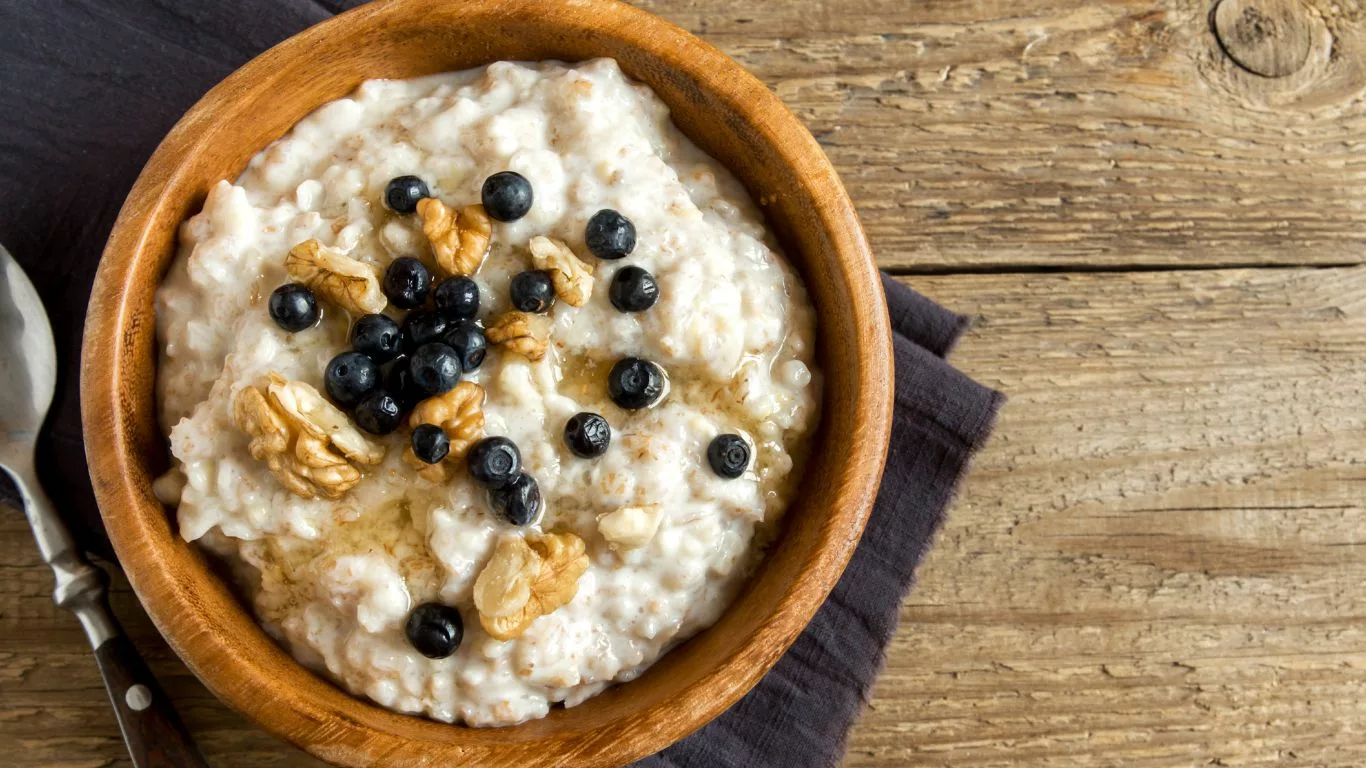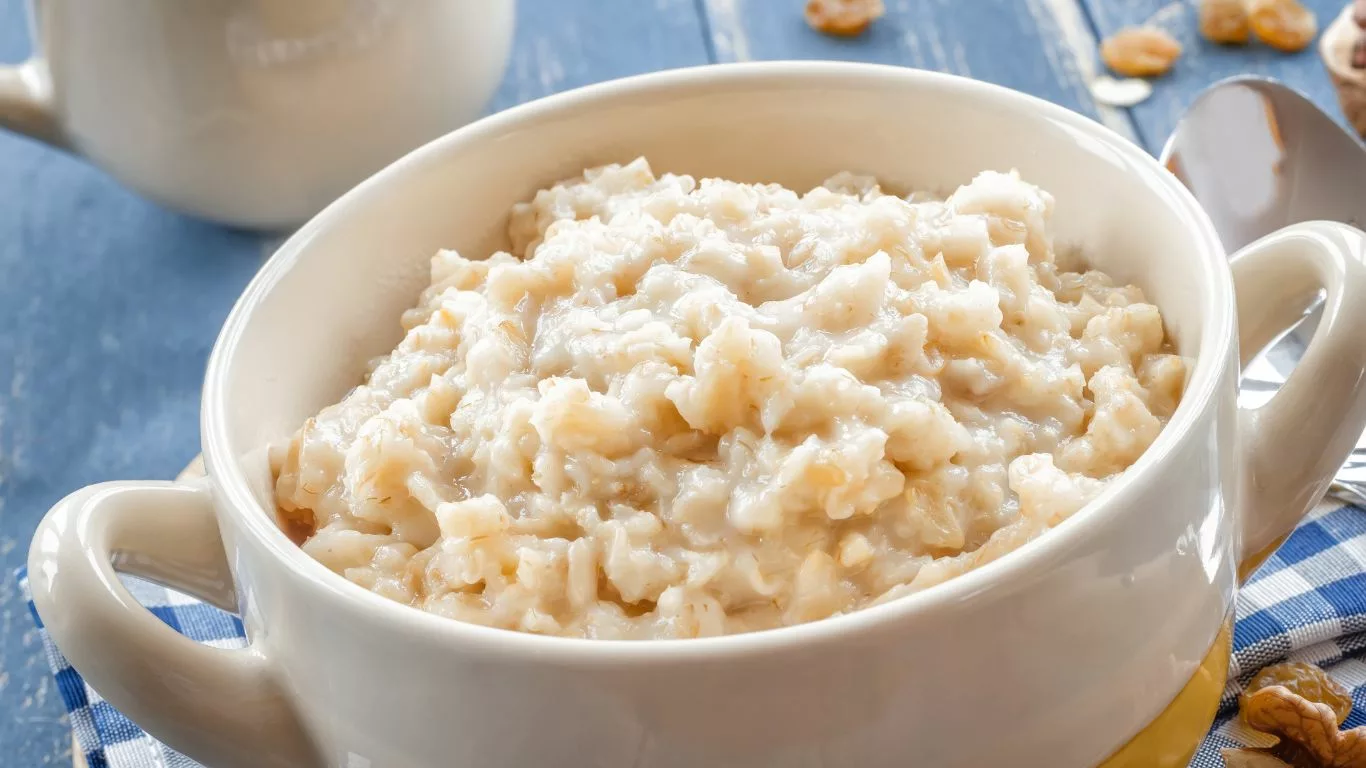Oatmeal’s Cholesterol Benefits: Science and Strategies
Is oatmeal good for cholesterol? Discover the science behind oatmeal’s cholesterol-lowering effects and learn practical strategies for a heart-healthy lifestyle.
Introduction
Cholesterol, a complex lipid molecule, plays a vital role in various physiological processes, from forming cell membranes to synthesizing hormones. However, an imbalance in cholesterol levels, especially an excess of low-density lipoprotein (LDL) cholesterol, can pose a significant risk to cardiovascular health. As individuals increasingly seek natural and holistic approaches to manage their cholesterol, oatmeal has emerged as a standout contender. In this comprehensive guide, we will delve deep into the scientific intricacies of oatmeal’s potential to influence cholesterol levels and explore practical strategies for incorporating this heart-healthy food into your daily routine.
Oatmeal: A Nutritional Powerhouse for Heart Health
Nutritional Breakdown of Oatmeal
Oatmeal, a product of whole oats, is brimming with a spectrum of nutrients that contribute to heart health. Beyond its impressive soluble fiber content, oatmeal boasts an array of vitamins and minerals crucial for cardiovascular well-being. Magnesium, for instance, relaxes blood vessels, promoting healthy blood flow and supporting optimal blood pressure levels. Additionally, antioxidants in oatmeal, such as avenanthramides, exert anti-inflammatory effects that further protect the heart.
Soluble Fiber and Cholesterol Reduction
Soluble fiber, a unique component of oatmeal, serves as the cornerstone of its cholesterol-lowering potential. This soluble fiber, mainly in the form of beta-glucans, forms a gel-like substance when it interacts with water in the digestive tract. As this gel moves through the gastrointestinal system, it binds to cholesterol molecules, preventing their absorption and facilitating their excretion. By curbing the entry of cholesterol into the bloodstream, oatmeal effectively reduces LDL cholesterol levels, mitigating the risk of arterial plaque formation.

Scientific Insights: Unraveling the Cholesterol-Lowering Mechanisms
Beta-Glucans and Beyond: Mechanisms of Action
The cholesterol-lowering effects of oatmeal are not solely attributed to its soluble fiber content. Within the body, beta-glucans undergo fermentation in the colon, yielding short-chain fatty acids. These fatty acids, particularly propionic and butyric acid, contribute to cholesterol regulation through multiple pathways. They inhibit cholesterol synthesis in the liver, influence the expression of genes involved in cholesterol metabolism, and enhance the clearance of LDL cholesterol from the bloodstream.
Evidence from Clinical Studies
Numerous clinical trials have underscored oatmeal’s potential to improve lipid profiles. A randomized controlled trial published in the Journal of the American Medical Association found that incorporating oat-based foods into the diet led to a significant reduction in total cholesterol and LDL cholesterol levels. Moreover, these effects were observed even in individuals with initially normal cholesterol levels, suggesting a preventive role for oatmeal in maintaining cardiovascular health.

Oatmeal: A Natural Alternative to Medication
Balancing Natural Approaches with Medical Interventions
While cholesterol-lowering medications play a crucial role in managing cardiovascular risk, their use may be accompanied by side effects and long-term considerations. Oatmeal presents a compelling alternative—an approach grounded in nature and backed by scientific evidence. Embracing oatmeal empowers individuals to proactively participate in their health journey and potentially reduce reliance on pharmaceutical interventions.
Integrating Oatmeal into Cholesterol Management Plans
For individuals currently prescribed cholesterol-lowering medications, oatmeal can synergistically enhance the effectiveness of treatment. Oatmeal’s multifaceted cholesterol-reducing mechanisms complement the action of medications, potentially leading to more profound improvements in lipid profiles. However, collaboration with a healthcare professional is paramount when considering adjustments to medication or dietary strategies.

Elevate Your Culinary Experience: Oatmeal Recipes and Varieties
The oatmeal aisle offers an array of choices, each varying in processing and nutritional content. Opt for whole oat varieties, such as steel-cut oats or old-fashioned rolled oats, as they retain the outer bran and germ layers rich in nutrients. These varieties undergo minimal processing, preserving their fiber content and ensuring a slower rise in blood sugar levels compared to instant oats.
Exploring Creative Oatmeal Recipes
Elevate your oatmeal experience by experimenting with diverse recipes that amplify both taste and nutritional value. Begin your day with warm cinnamon apple oatmeal topped with chopped nuts for added crunch and healthy fats. Delve into savory territory with a Mediterranean-inspired oatmeal bowl featuring olives, tomatoes, and feta cheese. For a delightful twist, blend oats into your morning smoothie for a creamy texture and cholesterol-lowering benefits.

Unleashing Oatmeal’s Full Potential in Cholesterol Management
Synergistic Foods for Comprehensive Heart Health
While oatmeal shines as a cholesterol-lowering star, its impact can be magnified when combined with other heart-healthy foods. Avocados, rich in monounsaturated fats, and nuts, packed with omega-3 fatty acids, synergize with oatmeal’s cholesterol-reducing effects. The incorporation of diverse nutrient-rich foods creates a well-rounded strategy for maintaining optimal cholesterol levels.
A Holistic Lifestyle Approach
Cholesterol management transcends dietary choices. Regular physical activity, such as aerobic exercises and strength training, promotes healthy blood circulation and optimizes lipid profiles. Adequate sleep, stress reduction techniques, and weight management collectively contribute to a comprehensive strategy for cardiovascular well-being, complementing oatmeal’s role in cholesterol management.
Answering Common Questions About Oatmeal and Cholesterol
Personalizing Oatmeal Consumption for Optimal Results
The optimal amount of oatmeal for cholesterol management varies based on individual factors such as age, gender, activity level, and overall health status. The American Heart Association recommends consuming a minimum of three servings of whole grains, including oatmeal, per day. However, consulting a registered dietitian or healthcare provider can provide personalized guidance tailored to your specific needs.
Tailoring Oatmeal to Different Cholesterol Levels
Oatmeal’s versatility extends to its applicability across diverse cholesterol levels. Whether you’re striving to maintain healthy cholesterol levels or addressing elevated cholesterol, oatmeal’s soluble fiber content contributes to improved lipid profiles. Its adaptability renders it a valuable addition to a range of dietary plans.

Leveraging Expertise: Partnering with Professionals for Optimal Results
Incorporating Professional Insights
Registered dietitians and healthcare providers recognize the potency of oatmeal in cholesterol management. Their expertise encompasses tailoring oatmeal consumption to your individual preferences and health goals, ensuring you harness its benefits to the fullest extent.
Collaborating with Healthcare Providers for Informed Choices
Before embarking on significant dietary modifications or introducing oatmeal into your routine, consulting a healthcare provider is indispensable. This collaborative approach ensures that dietary decisions align seamlessly with your overall health considerations, promoting a holistic and effective approach to cholesterol management.
Conclusion: Oatmeal’s Journey from Bowl to Heart Health
Oatmeal’s journey from humble grains to a nutritional powerhouse encapsulates its profound potential in cholesterol management and heart health. As scientific revelations continue to underscore its role in optimizing lipid profiles, oatmeal emerges as a cornerstone of cardiovascular wellness. By embracing oatmeal as a dietary ally and integrating it into a holistic heart-healthy lifestyle, you embark on a transformative journey—a journey marked by empowered cholesterol management, enhanced well-being, and a heart that beats strong and vibrant.

Appendices
References
- Jenkins, D. J., Kendall, C. W., Marchie, A., et al. (2003). Effects of a dietary portfolio of cholesterol-lowering foods vs. lovastatin on serum lipids and C-reactive protein. JAMA, 290(4), 502-510. https://pubmed.ncbi.nlm.nih.gov/12876093/
- Queenan, K. M., Stewart, M. L., Smith, K. N., Thomas, W., Fulcher, R. G., & Slavin, J. L. (2007). Concentrated oat β-glucan, a fermentable fiber, lowers serum cholesterol in hypercholesterolemic adults in a randomized controlled trial. Nutrition Journal, 6(1), 1-9. https://pubmed.ncbi.nlm.nih.gov/17386092/
- Tighe, P., Duthie, G., Vaughan, N., et al. (2010). Effect of increased consumption of whole-grain foods on blood pressure and other cardiovascular risk markers in healthy middle-aged persons: a randomized controlled trial. The American Journal of Clinical Nutrition, 92(4), 733-740. https://pubmed.ncbi.nlm.nih.gov/20685951/
Disclaimer: The information provided in this article is for educational purposes only and should not be considered a substitute for professional medical advice. Consult with a healthcare provider before making significant dietary changes or incorporating new foods into your routine, especially if you have preexisting health conditions or are on medication. The author and publisher of this article disclaim any liability for any adverse effects arising directly or indirectly from the use of the information provided.

Camellia Wulansari is a dedicated Medical Assistant at a local clinic and a passionate health writer at Healthusias.com. With years of hands-on experience in patient care and a deep interest in preventive medicine, she bridges the gap between clinical knowledge and accessible health information. Camellia specializes in writing about digestive health, chronic conditions like GERD and hypertension, respiratory issues, and autoimmune diseases, aiming to empower readers with practical, easy-to-understand insights. When she’s not assisting patients or writing, you’ll find her enjoying quiet mornings with coffee and a medical journal in hand—or jamming to her favorite metal band, Lamb of God.







